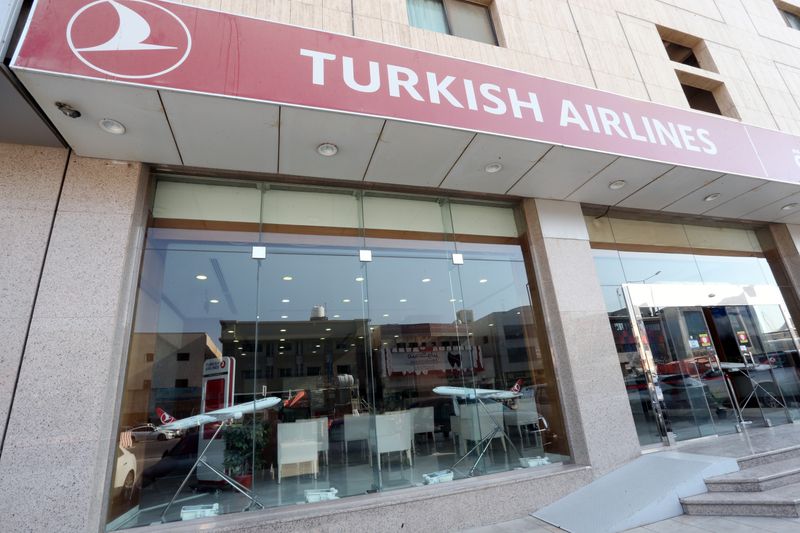By Marwa Rashad
RIYADH (Reuters) - Saudi Arabia's biggest supermarket chains this week joined a growing boycott of Turkish imports proposed by business leaders and Saudis on social media, as political tensions spilled into trade between the two regional powers.
Turkey and Saudi Arabia have been at loggerheads since the 2011 "Arab Spring" over Ankara's support for Islamist political groups. The 2018 murder of Saudi journalist Jamal Khashoggi in the kingdom's Istanbul consulate escalated tensions sharply.
Othaim Markets (E:4001), Danube Supermarkets, Tamimi Markets and Panda Retail Company issued statements announcing they would stop carrying Turkish goods once existing stocks are sold off."Our leaders, our government and our security are a red line and they do not accept to be harmed," Othaim Markets said in the statement on its company Twitter account.
Saudi Arabia's government media office has said authorities have not placed any restrictions on Turkish goods.
However, in an apparently informal boycott of imports of Turkish goods, signs urging customers not buy Turkish goods were seen in some retail stores in the capital Riyadh last week.
The head of Saudi Arabia's non-governmental Chambers of Commerce, Ajlan al-Ajlan, called for the boycott earlier this month.
On social media, the hashtags #Boycott_Turkish_Products and #Turkish_Products_Boycott_Camapaign have been trending over the last month.
"I came to the supermarket and have avoided all of the Turkish products, because we have to be with the government, all of us should be like one hand," said Oum Nasser al-Harbi, a Saudi woman shopping at Othaim Markets.
TRADE HUB
In Turkey, exporters said they had experienced growing difficulties with Saudi Arabia, although they faced fewer problems with regional trade hub the United Arab Emirates, which is also opposed to Turkish foreign policy in the region.
"It has been going on for a year, but in the recent period, the pressure on businessmen in Saudi Arabia 'to not buy made in Turkey' has come up," said Ferdi Erdogan, head of the Association of Turkish Construction Material Producers.
On Oct. 10, eight leading Turkish business groups urged Saudi Arabia to act to improve trade relations.
"Any official or unofficial initiative to block trade between the two countries will have negative repercussions on our trade relations and be detrimental to the economies of both countries," the business groups, including textile exporters and contractors, said in a statement.
In 2019, Turkish exports to the kingdom amounted to some $3.1 billion. So far this year, neither Turkish nor Saudi trade data show an unusually large drop in two-way trade, even allowing for strains on global commerce from the coronavirus pandemic.
In the second quarter, Turkey was Saudi Arabia's 12th trade partner by total import value. The latest data shows Saudi imports from Turkey were worth about $185 million in July, up from roughly $180 million in June.
Some Saudis still see value in bilateral trade even with Turkish, Saudi and Emirati officials trading barbs over the Libya conflict and Ankara's support for Qatar in a dispute with its fellow Gulf states.

"As a consumer, I see that the Turkish products have high quality at a reasonable price," Obaid Alosaime said, adding that a boycott would hurt Saudi consumers by limiting their options.